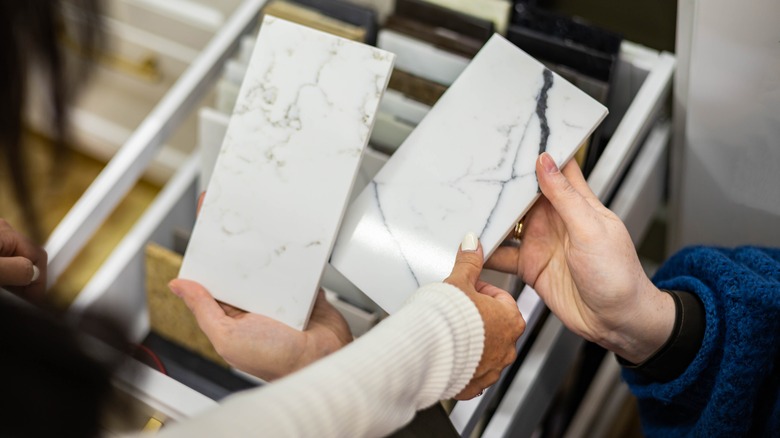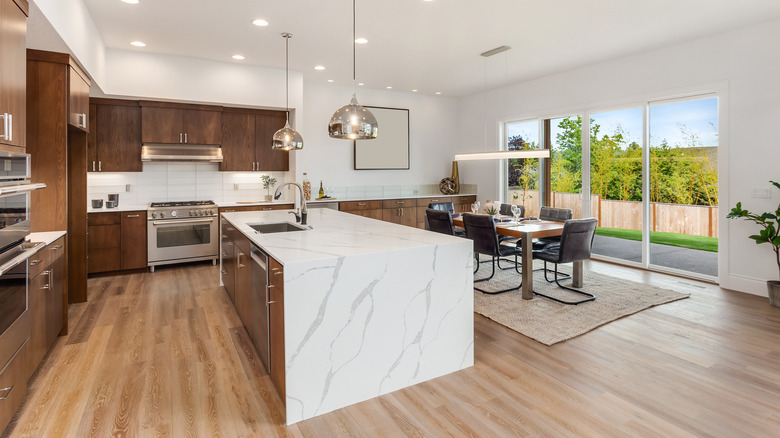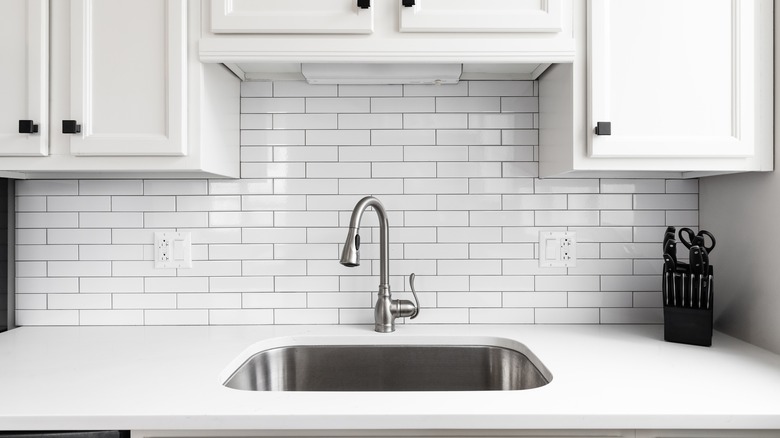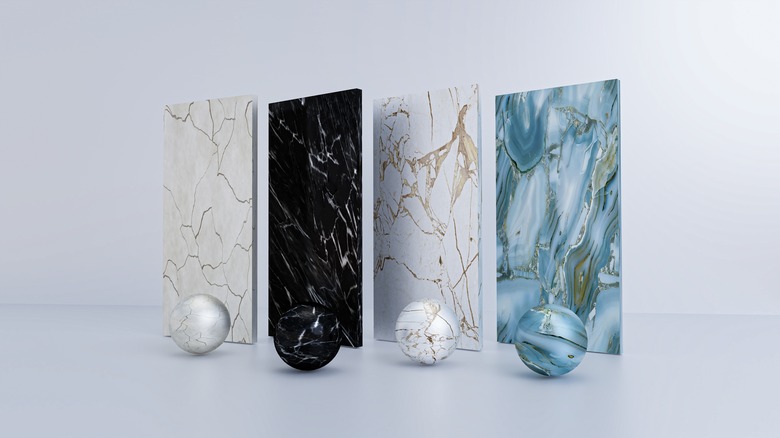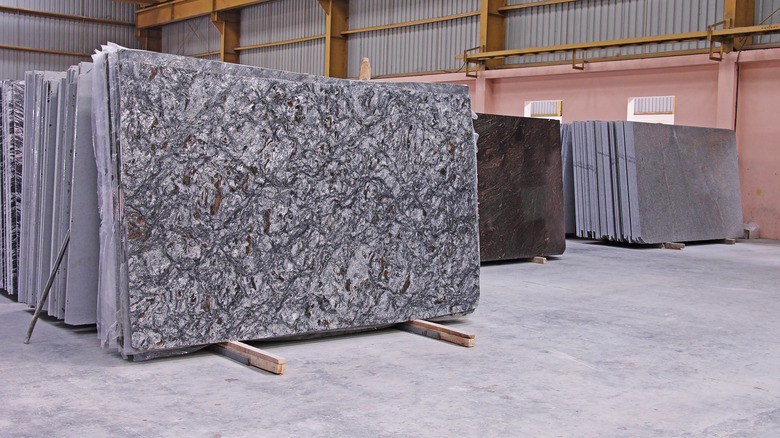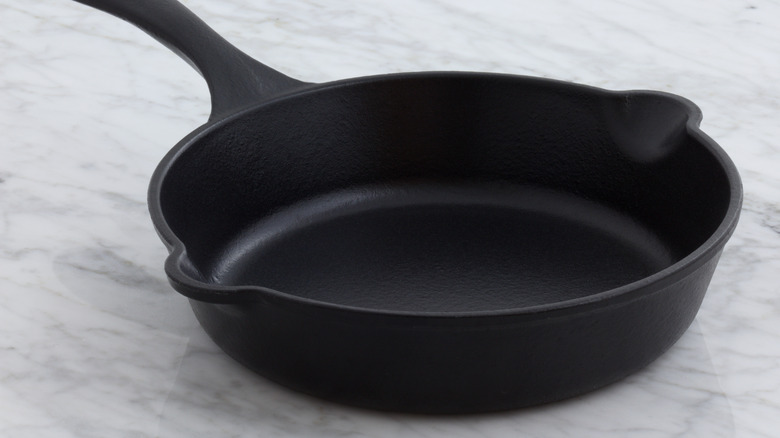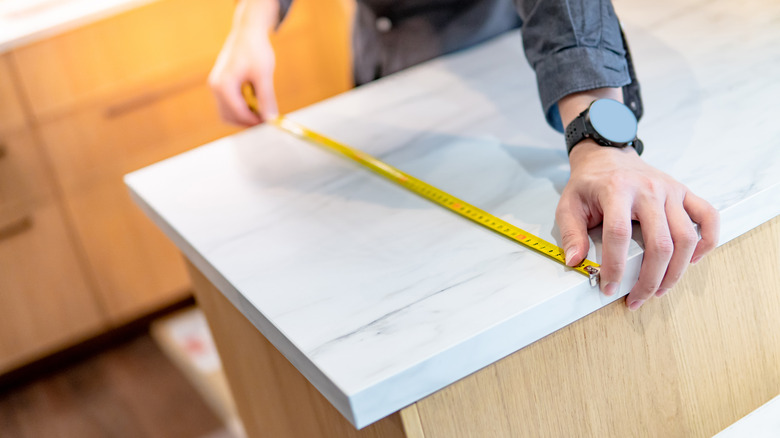What's The Difference? Granite Vs Quartz Countertops
Is there much of a difference between granite and quartz countertops? Most often, when deciding which to choose, it's just a matter of taste, and for some of us, it's pretty tough to even tell the difference between the two. Still, there are some differences, including where the materials come from, how much they cost, and what type of maintenance is required.
No matter what type of countertop material you choose, one thing is for certain: Home renovations make us feel good about ourselves and our homes. According to Long Island Press, home renovations are driven by more than a need to increase home value. They often stem from our emotions. As you look around your home you may feel some nostalgia in a particular room, or while looking at a piece of furniture where many special moments are made. You make memories in your home, so this is only logical. That nostalgia drives us to create an environment that flows with those feelings. The other emotion you likely strive to feel daily in your home is happiness. Home renovations, such as new countertops, simply make us happy. In that case, go for it. In this article we'll compare both granite and quartz as a countertop material, so you can decide which is best for you.
What is quartz?
Quartz is one of the most common choices for countertops, but did you know quartz is actually an abundant mineral that is found in the earth's crust? Technically, minerals are also referred to as rocks, so you may hear quartz described as a rock as well. There are several types of quartz, including rose quartz, amethyst, and sandstone.
B.C. Stone explains that quartz is mined, ground into a powder, and then fused with a resin material to form the rock-hard substance we use for beautiful countertops. During the process of binding the resin and minerals together, pigments are added as needed for color. This combination is considered engineered quartz, as it is no longer in its purest form. However, don't let that be of concern. Engineered quartz is strong and beautiful. It was introduced in the '60s, per Rocktops, and became wildly popular in the '90s thanks to HGTV home improvement shows. The popular choice for bathrooms and kitchens isn't fading, and quartz still makes a fabulous, stylish choice for any home.
What is granite?
Perhaps one of the most interesting facts about granite is that it contains quartz. Geology.com explains that granite is an igneous rock, which slowly forms under the earth's surface, and is made up of both quartz and feldspar, as well as other minerals. If you were to see a piece of granite, fresh from the earth, you'd notice it has a large grain, which basically refers to the holes you see in a rock. Due to those holes, it's easy to see the other minerals inside a piece of granite. It's no wonder granite makes such a beautiful countertop, with so many variations, colors, and sparkles naturally formed in it.
The beautiful stone has been used for literally thousands of years for both interior and exterior purposes. Granite is commonly quarried in the U.S. in Massachusetts, Georgia, New Hampshire, South Dakota, and Idaho. It's usually cut into slabs or blocks, making it a dimension stone.
Which one looks better?
This is most likely a personal preference; however, quartz and granite have one big difference that can influence their appearance: Granite is all-natural. As mentioned, quartz is engineered by combining materials, including man-made resin. Although quartz can look like a natural stone, and it does have some natural qualities, there's no comparison when it comes to granite and quartz countertops. Granite is a real slab of stone sitting on top of your kitchen cabinets or island. This isn't to say quartz isn't equally beautiful — because it absolutely is.
Basically, each homeowner has their own taste, so it really depends on what it is you're trying to achieve. Do you love the idea of a rugged, all-natural vibe? Then granite will probably look better to you. If you aren't concerned with your counter looking like it's fresh from the earth, quartz counters come in several gorgeous shades and are a wise choice as well. Precision Stone Design recommends first considering the shade you want. Once that's decided, you can compare different counter materials, such as quartz and granite. In the end, when it comes to beauty, it's best to check other areas of concern when comparing. Quartz and granite are both attractive and appealing in their own way.
Maintaining quartz and granite
When it comes down to it, maintenance is possibly the most important consideration for your countertops. After all, a beautiful countertop that isn't easily cleaned or requires too much attention might detract from the joy of cooking. You need your kitchen to work with you and not against you. Thankfully, both granite and quartz aren't too finicky when it comes to maintenance.
Molly Maid suggests keeping it simple when cleaning your granite countertops to keep them in pristine condition. Wipe up spills as soon as you can, and when doing a thorough cleaning of your granite countertops, don't use harsh chemicals or anything abrasive. Instead, use what you already have on hand: dish soap and a soft rag. Just a couple of drops of dish soap with some warm water does the trick. Wipe with clean water after using the soap and then dry the counters for a nice shine. Granite is usually sealed during installation, but when you notice the shine is disappearing even after cleaning, it may mean it's time to seal them again. You can find granite sealer at a home improvement store. Every two to four years is the average for resealing a granite countertop. There are also easy sprays that can be used daily on your granite to enhance shine and continually seal.
Quartz countertops require about the same maintenance as granite; however, they don't need to be sealed and that's quite a bonus if you don't want to worry about that. Clean them gently with soap and water just as you would granite tops. B.C Stone explains that to make your quartz countertops shine, you can employ your favorite glass cleaner
Which is more eco-friendly?
Today, when renovating a home, people often consider eco-friendly options, and for good reason. According to GreenGeeks, creating an eco-friendly home gives you and your family a healthier space and saves on energy bills. The U.S. produces almost five times the carbon footprint as compared to the rest of the world, every year. That's not good for any of us. Every little step we take to make improvements is helpful. When it comes to countertops, both quartz and granite have their pros and cons as far as being eco-friendly.
Since quartz is often mined overseas, there are hefty fuel requirements to get it to the U.S. However, because quartz is so strong, it will last for decades, and it's also recyclable should you decide to make a switch. Quartz also doesn't require sealant, which means fewer chemicals and plastic bottles that house the sealant. Granite, on the other hand, is completely natural, mined from the earth, and will also last a lifetime. It does require a sealant though, and that sometimes has chemicals in it. There are positives and negatives to both countertop choices when it comes to the environment. What's also important is sourcing through companies that care about the environment — their practices make a big difference.
The cost of quartz and granite
Even if you love quartz, can you afford it? And what about granite? Is one more expensive than the other? Well, it sort of depends. Both are very popular and have been for many years. That should be encouraging for those of us with an "average" home and budget. You obviously don't have to take out a second mortgage to afford nice countertops. Still, you want to save money wherever you can.
Prices vary for quartz countertops depending on the color and the manufacturer. Look for manufacturers who are concerned about high quality, yet offer fair prices. According to Bankrate, you can expect to pay between $15 and $70 per square foot of quartz, while Caesarstone you can pay up to $150 for top quality quartz. In comparison, granite ranges from $15 to $140 per square foot. When it comes to pricing, there isn't a huge difference, and just as with most things in life, the variations and quality will reflect in the cost.
Which one is more durable?
A new counter isn't much good if it doesn't stand the test of time. Since granite truly is a rock, and quartz is a strong mineral combined with resin, they are both up to the job of handling your shenanigans in the kitchen. MSI Surfaces explains that granite has historically been used for centuries for military monuments and memorials. If it's been trusted for the use of outdoor monuments for generations, surely granite can withstand your fantastic chef skills and creations in the kitchen. Basically, it's about the toughest natural material you can get for a countertop.
Don't let that steer you from quartz though. As a combination of ground rock and resin, it's tough as well. When it comes to durability, both are good options. One big difference is the need to be sealed. As we discussed previously, quartz can handle nearly as much as granite, but doesn't need a sealant. So, although granite is a slab of rock that's pretty tough to damage, it can be stained or chipped easier when not sealed properly. Quartz is fine on its own when not sealed. Keep in mind, both quartz and granite are heat-resistant but not heatproof. Use pads and other surface protectors when setting hot things down on the counter.
Installation of both granite and quartz
There's a time for a DIY and then there's not. Even if you're the neighborhood handyman, dealing with heavy materials like granite and quartz is quite a challenge. Thankfully, there isn't much of a difference between installing granite and installing quartz. As previously mentioned, the biggest difference is after installation, when granite must be sealed properly. Here's the thing about the installation of both granite and quartz: You're dealing with really heavy slabs of rock. It's not going to be a quick weekend project between you and your partner. You'll need some help with the heavy lifting (literally).
If you hire a professional, they have all of the necessary tools and materials, including back protection when lifting to get the slabs onto your countertops. Still, if a DIY is your jam, then go for it. Aqua Kitchen & Bath Design Center explains that, to install your countertops yourself, you'll need the following items and tools: painter's tape, shims, acrylic caulk, seam setter, a diamond-bladed angle grinder, and a level. If a few of those words sound foreign to you, you may want to call in a countertop installer. The moral of the story is that you can install your own stone countertops, but moving the granite or quartz is going to be quite a feat.
Return on investment
New countertops are a big investment no matter what the material is. When choosing between granite and quartz, consider your return on investment in case you decide to sell your home. Investopedia explains that ROI (return on investment) is basically the money you make back after investing funds. When considering countertops in your home, ROI comes into play when and if you sell your house. Let's say your house could sell for $200,000 with your old Formica countertops, but with new, shiny, granite countertops, it sells for $250,000. Your ROI is $50,000 minus what you spent on the counters. If the total spent was $20,000 then your ROI is $30,000. That's just an example, but often, kitchen countertops are worth the investment as a home improvement project. Kitchens sell the house.
The question we are all asking is, which material has a greater ROI? Granite or quartz? A lot of factors could come into play, however, although granite had a long reign as number one in popularity, today quartz is the most popular, per Ceaserstone. The reason for this is that homeowners love quartz because it requires very little maintenance and yet still looks beautiful after many years of use. Granite will give you a decent return on investment, but if you're looking to please future buyers, right now, quartz seems to be a buyer's choice.
Which countertops offer more choices?
We all love choices and both granite and quartz offer an array of them for countertops. As we've discussed, granite is a natural stone and is loved for those qualities. The material isn't changed a lot when sealed and used as a countertop, because that's the point of granite. Quartz, on the other hand, is mixed with other compounds and during that process, colors are added. The end result is that quartz offers many more choices than granite. Granite is beautiful and it serves its purpose as a "stone" look in the kitchen or bathroom, giving a warm and rustic vibe that's tough to find in quartz. Still, if it's a variety of color and style choices you seek, then quartz is probably the way to go.
If you're having a hard time deciding, consider first what shade suits your kitchen best. Do you want light or dark countertops? Marble.com explains that, in general, a light countertop gives the kitchen a fresh and bright vibe, while darker countertops bring warmth and go well with a rustic, sophisticated, or bold style. Either way, you'll find light and dark shades in both granite and quartz, but quartz will offer more options.
The bottom line
The bottom line is when it comes to a new anything in your home, you need to choose something you will enjoy living with for many years. ROI is important if you're going to sell. If you don't see ever wanting to leave your home, then ROI really isn't a consideration. What matters most is that, when you walk into your kitchen, you smile and are satisfied with the counter choice you made. No matter what, countertops are a big investment. You want that investment to be worth it. Improving the kitchen makes a big impact on your home and the way you feel about it. Granite and quartz are both rock-solid choices. There isn't a huge difference in cost, and both are durable and fairly easy to maintain when treated correctly. Quartz offers more color variety and granite offers several color choices as well, while remaining the most natural-looking stone choice available. You can't go wrong with either option.
According to GranitePro, if you aren't sure if you need new countertops, there are a few things to consider when deciding. How old are they? If countertops are over 15 years old, it's usually wise to replace them. Do you notice obvious wear and tear? This could mean scratches, stains, burns, or cracks in the countertops. If you have granite and the sealant hasn't been kept up with, your counters will lack shine. It can be hard to get that back after it's been missed for years. In that case, if the countertops are old, it's probably best to replace them. And even if you see none of these signs, but your home or kitchen simply feels outdated, go ahead and splurge on one of the things that can change the entire vibe of the house: new countertops.
